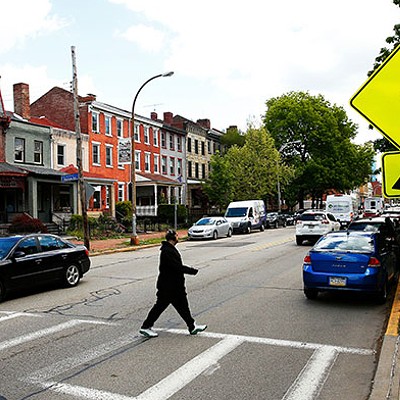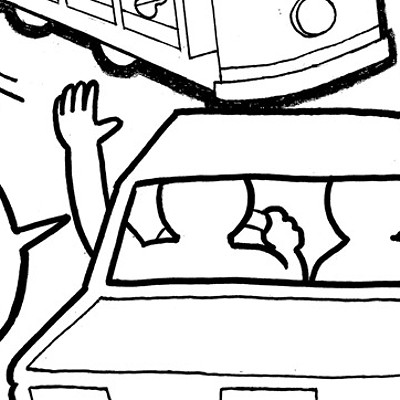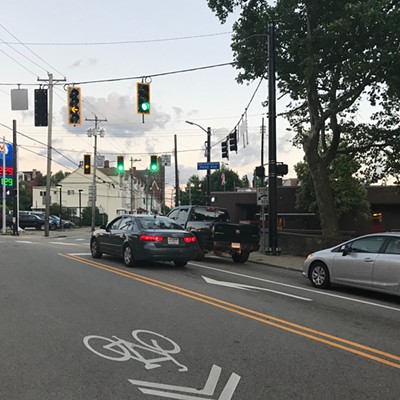Back in 2006 when the city of Pittsburgh decided to crack down on "aggressive panhandling," I really struggled to see the point.
Despite coming from a small town, I have never felt hassled by people who approach me on the street for money. If I have some extra to give, I gladly hand it over. If I don't, I politely inform them of that and keep on my way. But I can honestly say at no time in my adult life have I ever felt threatened or even bothered by the practice.
But for some people, the thought of being asked for money on the street angers them. To them, a person asking for a dollar for food, or bus fare, or "a bottle of vodka, because shit, it's my birthday" (true story) is either begging because they're too lazy to get a job or is begging because it is their job. We've all heard the urban legend about our uncle's neighbor's wife's brother who gave a guy a dollar on the street corner, and then later saw the guy getting behind the wheel of a BMW.
The city of Pittsburgh first caved into these ridiculous generalities when it enacted legislation that severely limited panhandling in the city. The law described selective criteria that made it illegal for anyone to engage in "aggressive panhandling." Among them, the law listed several "captive audience areas" where panhandling was prohibited, including: outside dining areas; admission lines for events like a play or sporting event; near a "food-dispensing street vendor"; within 10 feet of a bus stop; or near a "a place of religious assembly."
The two most ironic of these prohibitions are panhandling near a street vendor — which has also been mostly regulated out of the city by draconian food-truck legislation — and asking for cash near church. God knows the last thing organized religion needs is somebody dipping into the weekly tithes before the church can.
The city's law was back in the news last week when a Pittsburgh City Council committee approved an amendment that would prohibit panhandling within 25 feet of any of the city's automated parking meters. By the time this issue hits the streets, it will likely be approved.
Will it make much difference? It could. The parking boxes are located on every block in highly-traveled areas — locations that would be attractive to panhandlers. Add that to the number of restrictions already in place, and you'll need a tape measure and a licensed surveyor just to ask for a quarter.
Last year, a federal appeals court in Michigan struck down that state's panhandling laws as a violation of free speech. Courts have allowed very narrow aggressive panhandling laws to stand, but have generally ruled that the act of begging or asking for money is protected speech.
But despite that, a Pittsburgh panhandler can be cited, fined or —depending on how many previous offenses they have — jailed, just for asking another person for money. But that's nothing new around here. The city's panhandling law is as egregiously classist and antisocial now as it was in 2006.
There's a silver lining, however. This change to the law shouldn't go unchallenged. The re-emergence of the city's panhandling issue should be used as an opportunity to re-examine the statute in light of court rulings that have occurred since 2006. The no-beg barriers around certain areas create a de facto ban on panhandling, and if city council wants to widen that area, then it should be forced to show why that's necessary and to prove that such restrictions don't violate free speech.
You can call it panhandling if you want to, but speech is at the heart of this issue. The interaction in this scenario is simply a conversation between two people. One person might be asking another person for money, but they're just talking. In any other social setting we wouldn't dream of trying to stop two people from speaking to one another. In this instance, however, the question being asked makes some people uncomfortable for one reason or another and that is what led to this prohibition
To allow city council to further widen this law without challenge would be akin to giving them a handout — a practice they obviously have a problem with.


















